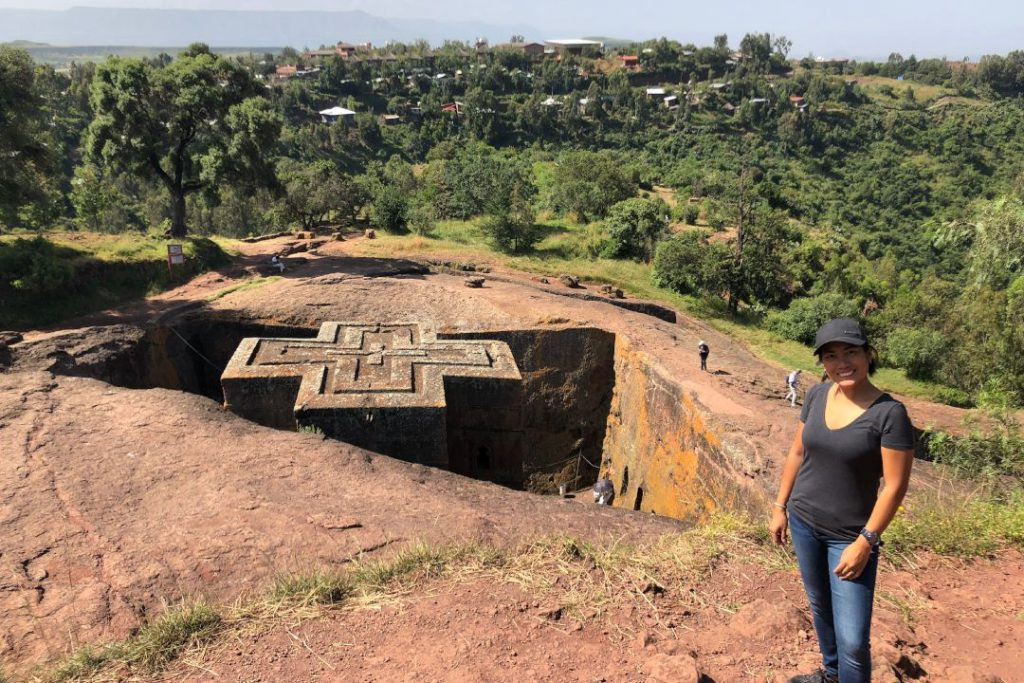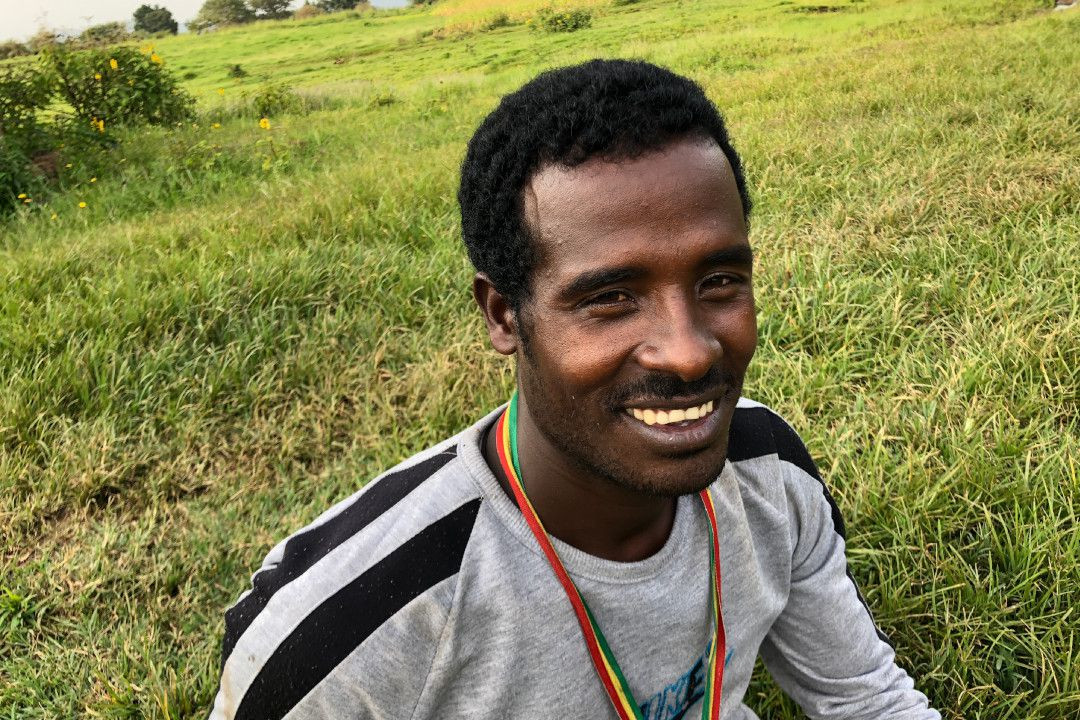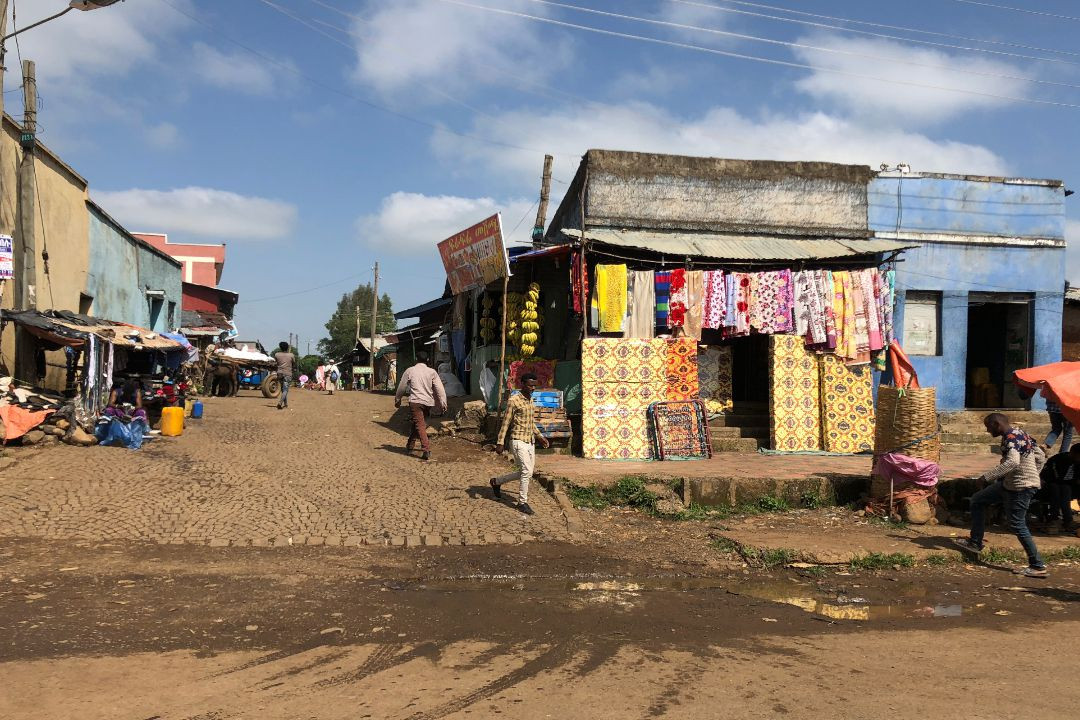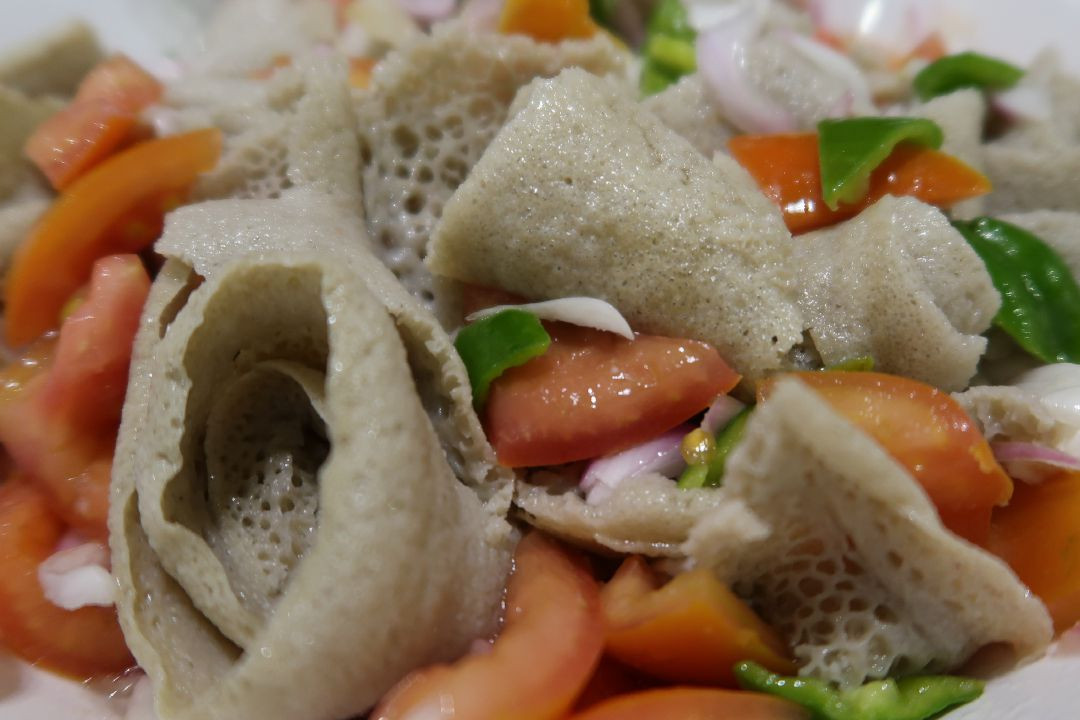Are you curious about exploring the wonders of Ethiopia? Uncover the allure of Ethiopian tourism and begin your adventure worry-free with SIXT.VN. We provide expert travel advice, convenient airport transfers, hotel booking assistance, and unforgettable tour experiences.
Ethiopia, a land of ancient mysteries and stunning landscapes, offers a tourism experience unlike any other. From historical sites to vibrant cultures, and breathtaking scenery to distinctive cuisine, this East African gem promises an unforgettable journey for every traveler. Ready to explore? Let’s dive in and discover what tourism in Ethiopia is like.
1. What Unique Experiences Await Tourists in Ethiopia?
Ethiopia offers a diverse range of tourist activities, mostly historic sites, tribal culture and a lot of stunning landscapes. Unlike Kenya or Tanzania, Ethiopia is not known for wildlife safaris.
- Historical Sites: Explore ancient landmarks like Lalibela’s rock-hewn churches, Aksum’s obelisks, and Gondar’s castles. These sites offer a glimpse into Ethiopia’s rich history and religious heritage.
- Tribal Culture: Immerse yourself in the vibrant cultures of the Omo Valley tribes, known for their unique customs, traditions, and body adornments.
- Landscapes: Witness the geological marvel of the Danakil Depression, one of the hottest and lowest places on Earth. Hike through the Simien Mountains National Park, a UNESCO World Heritage site.
- Religious Significance: Visit the Abuna Yemata Guh church, a 6th-century church carved into a cliff face, showcasing Ethiopia’s deep religious roots.
According to UNESCO, the rock-hewn churches of Lalibela are a unique testament to medieval and post-medieval civilization of Ethiopia, which makes it one of the must-see attractions when you are visiting Ethiopia.
2. What Are the Top Tourist Destinations in Ethiopia?
Ethiopia boasts a wealth of attractions, each offering a unique experience. Here are some must-visit destinations:
| Destination | Highlights | Best For |
|---|---|---|
| Lalibela | Rock-hewn churches, religious festivals | History buffs, pilgrims |
| Aksum | Ancient obelisks, historical sites | History enthusiasts |
| Gondar | Castles, historical architecture | History and architecture lovers |
| Omo Valley | Tribal villages, cultural immersion | Cultural explorers |
| Danakil Depression | Volcanic landscapes, salt flats | Adventure seekers |
| Simien Mountains | Hiking, wildlife viewing (Gelada baboons, Walia ibex) | Nature lovers, hikers |
| Addis Ababa | National Museum of Ethiopia, Merkato Market, historical sites | Cultural enthusiasts |
 Rock-Hewn Churches of Lalibela, Ethiopia
Rock-Hewn Churches of Lalibela, Ethiopia
3. How Can I Travel Around Ethiopia?
Navigating Ethiopia can be an adventure in itself. Here are the most common transportation options:
- Travel Operators: Hiring a travel operator is highly recommended, especially for those on a tight schedule or traveling with family. These operators can handle logistics, provide knowledgeable guides, and ensure a smooth and efficient trip.
- Flights: Domestic flights are the quickest way to travel between major cities and tourist destinations, such as Lalibela.
- Driving: Renting a car and driving allows you to explore the countryside at your own pace. However, be prepared for bumpy roads and potential navigation challenges.
- Buses: While buses are an option, they often lack fixed schedules and can be unreliable.
SIXT.VN can arrange private airport transfers, rental cars, and organized tours to suit your preferences.
4. What Should I Expect on a Typical Day of Sightseeing in Ethiopia?
A typical day of sightseeing in Ethiopia might involve:
- Morning: Start with breakfast at your hotel, followed by a pick-up from your tour guide and driver.
- Daytime: Explore local sights, historical landmarks, or cultural attractions. Enjoy lunch at a local restaurant or hotel, often offering set menus or buffets catering to tourists.
- Afternoon: Continue sightseeing, visiting more attractions, or engaging in cultural experiences.
- Evening: Return to your hotel around 4 pm to relax and prepare for the next day’s adventures.
5. What is the Quality of Tour Guides and Vehicles in Ethiopia?
The quality of guides in Ethiopia is generally impressive, with many possessing extensive knowledge of the country’s history and culture. English proficiency can vary, but it is usually adequate for communication. Ensure you book with a reputable tour operator with positive reviews. Tour vehicles typically include vans or Pajero-type jeeps.
According to TripAdvisor, many tourists have highlighted the guides in Ethiopia because they are knowledgable and passionate about their history and culture.
 Local Guide in Ethiopia
Local Guide in Ethiopia
6. What is the Infrastructure Like in Ethiopia?
Ethiopia is a developing country, and its infrastructure reflects this:
- Roads: Be prepared for bumpy roads, especially outside of major cities.
- Public Toilets: Public toilet facilities can be lacking, so plan accordingly.
- Internet: Wi-Fi is often available in hotels, but internet connectivity can be unreliable, particularly in remote areas. Mobile data may be limited.
- Hotels: Opt for mid-range or luxury hotels for more comfortable accommodations.
- Supermarkets: Supermarkets are primarily found in Addis Ababa, with limited options in smaller towns.
- Airports: Addis Ababa has a large international airport. Domestic airports are smaller and offer limited amenities.
- Electricity and Water: Power supply is generally reliable, but hot water may be limited in some accommodations.
- Banking: ATMs are available, but credit cards are not widely accepted. Carry sufficient cash.
SIXT.VN provides detailed information about accommodation options and infrastructure to help you plan your trip effectively.
7. How Safe and Secure is Ethiopia for Tourists?
Ethiopia is generally considered a safe country for tourists. However, it’s essential to be aware of your surroundings and take precautions:
- Driving: Driving is a great way to see the country, but solo travel is not recommended due to navigation difficulties and potential road hazards.
- Petty Theft: Be mindful of your belongings, especially in crowded areas.
- Cultural Sensitivities: In some regions, particularly in the south, locals may be pushy when selling goods or asking for money for photographs.
SIXT.VN prioritizes your safety and can provide guidance on safe travel practices in Ethiopia.
8. What are Some of the Unique Aspects of Ethiopian Culture?
Ethiopian culture is rich and diverse, with unique traditions and customs:
- Timekeeping: Ethiopians often use a 12-hour clock system that starts at dawn, which can be confusing for visitors.
- Greetings: Ethiopian greetings often involve touching hands and shoulders.
- Ways of Life: Lifestyles vary greatly throughout the country, from the bustling metropolis of Addis Ababa to self-sufficient villages and thriving tribal communities.
- Coffee Ceremony: Participate in a traditional coffee ceremony, a ritualistic bonding event and an essential part of Ethiopian culture.
According to research by Taylor & Francis, traditional greetings between people from different social groups involve the younger person bending down and kissing the ground before the elder, this highlights the hierarchical structure of the society.
 Local Houses in Suburbs of Ethiopia
Local Houses in Suburbs of Ethiopia
9. What Kind of Food and Drink Can I Expect in Ethiopia?
Ethiopian cuisine is centered around injera, a pancake-like flatbread served with various stews, meats, and vegetables. Key aspects include:
- Injera: A staple food used to scoop up dishes.
- Spiced Dishes: Ethiopian food is often richly spiced and flavorful.
- Vegetarian Options: Due to religious fasting days, there are many delicious vegetarian dishes available.
- Coffee Ceremony: An integral part of Ethiopian culture, involving the roasting, grinding, and brewing of coffee.
SIXT.VN can recommend local restaurants and culinary experiences to enhance your cultural immersion.
 Injera Salad, Traditional Ethiopian Dish
Injera Salad, Traditional Ethiopian Dish
10. How Can SIXT.VN Enhance My Trip to Ethiopia?
SIXT.VN offers a range of services to ensure a seamless and unforgettable travel experience in Ethiopia:
- Personalized Itineraries: Tailored travel plans to suit your interests and preferences.
- Airport Transfers: Convenient and reliable airport pick-up services.
- Hotel Bookings: Assistance in finding accommodations that meet your budget and needs.
- Guided Tours: Expert-led tours to explore Ethiopia’s historical sites, cultural attractions, and natural wonders.
- Flight Bookings: Help with securing the best flight deals for your travel dates.
- 24/7 Support: Dedicated support team available to assist you throughout your trip.
With SIXT.VN, you can focus on enjoying the wonders of Ethiopia while we handle the details.
11. What Should I Pack For a Trip To Ethiopia?
Packing appropriately for a trip to Ethiopia will ensure you are comfortable and prepared for the diverse experiences the country offers. Here are some essential items to consider:
-
Clothing:
- Lightweight, Breathable Fabrics: Pack clothing made from cotton, linen, or moisture-wicking materials to stay cool in the Ethiopian heat, especially if you’re visiting the Danakil Depression or other hot regions.
- Layers: Evenings and higher altitude areas like the Simien Mountains can get chilly, so bring layers like sweaters, fleece jackets, and a lightweight windproof jacket.
- Modest Clothing: When visiting religious sites like churches and monasteries, dress modestly. This typically means covering your shoulders and knees. A scarf can be useful for women to cover their heads when required.
- Long-Sleeved Shirts and Pants: Protect yourself from mosquitoes, especially in the evenings, and from the sun during the day.
- Comfortable Walking Shoes: You’ll be doing a lot of walking, so bring sturdy, comfortable shoes. If you plan on hiking in the Simien Mountains or other areas, pack hiking boots.
-
Health and Personal Care:
- Sunscreen: The Ethiopian sun can be intense, so pack a high SPF sunscreen.
- Insect Repellent: Protect yourself from mosquitoes and other insects, especially if you’re visiting rural areas.
- Hand Sanitizer: Useful for maintaining hygiene, especially when traveling in areas with limited access to clean water.
- Personal Medications: Bring any necessary medications, along with copies of your prescriptions. It’s also a good idea to pack a basic first-aid kit with items like pain relievers, antiseptic wipes, and bandages.
- Toiletries: While you can buy basic toiletries in Addis Ababa, it’s best to bring your preferred brands, especially for specialized items.
-
Electronics and Gadgets:
- Camera and Accessories: Capture the stunning landscapes, historical sites, and cultural moments. Don’t forget extra batteries and memory cards.
- Power Adapter: Ethiopia uses Type C, E, F, and L plugs, so bring a universal adapter to charge your devices.
- Portable Charger: Useful for keeping your devices charged when you’re on the go.
- Headlamp or Flashlight: Handy for navigating in areas with limited lighting, especially in rural areas or during power outages.
-
Documents and Money:
- Passport and Visa: Ensure your passport is valid for at least six months beyond your intended stay. Check visa requirements for your nationality.
- Copies of Important Documents: Keep copies of your passport, visa, and travel insurance in a separate location from the originals.
- Cash: Credit cards are not widely accepted outside of major hotels and restaurants in Addis Ababa, so bring enough cash in USD or EUR to exchange for Ethiopian Birr.
- Travel Insurance: Essential for covering medical emergencies, trip cancellations, and lost luggage.
-
Other Useful Items:
- Reusable Water Bottle: Stay hydrated, especially in hotter regions.
- Snacks: Useful for long drives or hikes when food options may be limited.
- Small Backpack: For carrying essentials during day trips and sightseeing.
- Phrasebook or Translation App: Although English is spoken in tourist areas, knowing a few basic phrases in Amharic can enhance your interactions with locals.
- Scarf or Shawl: Versatile for covering up when visiting religious sites or protecting yourself from dust and sun.
12. What are Some Cultural Etiquette Tips For Ethiopia?
Respecting local customs and traditions can greatly enhance your travel experience in Ethiopia. Here are some etiquette tips to keep in mind:
- Greetings:
- Handshakes: Handshakes are a common form of greeting. When greeting elders or people of higher status, it is customary to offer your right hand while supporting your right forearm with your left hand as a sign of respect.
- Eye Contact: Maintaining eye contact during greetings is generally appreciated as a sign of sincerity.
- Dining:
- Eating with the Right Hand: Ethiopians traditionally eat with their right hand. Use your fingers to tear off pieces of injera (a spongy flatbread) and scoop up the accompanying stews.
- Sharing Food: Food is often served communally from a shared plate. It is customary to eat from the area of the plate directly in front of you and to avoid reaching across the plate.
- Accepting Food and Drink: If offered food or drink, especially in rural areas, it is considered polite to accept, even if you only take a small portion. Refusing hospitality can be seen as disrespectful.
- Coffee Ceremony: If invited to a coffee ceremony, accept the invitation and participate respectfully. The coffee ceremony is an important social and cultural event in Ethiopia.
- Visiting Religious Sites:
- Dress Modestly: When visiting churches, monasteries, and other religious sites, dress modestly. This means covering your shoulders and knees. Women may also be required to cover their heads.
- Remove Shoes: In many Ethiopian Orthodox churches, it is customary to remove your shoes before entering. Observe the local customs and follow the lead of other worshippers.
- Silence and Respect: Maintain a respectful demeanor while visiting religious sites. Speak quietly, avoid disruptive behavior, and refrain from taking photos during religious services.
- Photography:
- Ask Permission: Before taking photos of people, especially in rural areas, ask for their permission. Some individuals may expect a small payment in exchange for being photographed.
- Respectful Photography: Avoid taking photos of sensitive subjects, such as military installations or government buildings.
- General Conduct:
- Respect Elders: Elders are highly respected in Ethiopian society. Show deference to elders by greeting them respectfully and listening attentively to their advice and stories.
- Avoid Public Displays of Affection: Public displays of affection are generally frowned upon in Ethiopia.
- Tipping: Tipping is not as widespread in Ethiopia as it is in some Western countries, but it is appreciated for good service. A tip of 5-10% is customary in restaurants and for other service providers.
- Bargaining: Bargaining is common in markets and when purchasing souvenirs. Be polite and respectful during the bargaining process.
13. What Are The Visa Requirements For Visiting Ethiopia?
Understanding the visa requirements is crucial for planning a trip to Ethiopia. Here’s a detailed overview:
-
Visa Types:
- Tourist Visa: This is the most common type of visa for travelers visiting Ethiopia for leisure, sightseeing, or recreational purposes.
- Business Visa: If you plan to engage in business activities, attend conferences, or meet with business partners in Ethiopia, you will need a business visa.
- Other Visas: Depending on the purpose of your visit, other types of visas may be required, such as student visas, work visas, or diplomatic visas.
-
Visa Application Process:
- Online Application: Ethiopia offers an e-visa service for eligible nationalities. You can apply for a tourist e-visa through the official Ethiopian e-visa portal. The online application process typically requires you to provide personal information, travel details, passport information, and a digital passport-sized photo.
- Embassy or Consulate Application: If you are not eligible for an e-visa or prefer to apply in person, you can submit your visa application at the Ethiopian embassy or consulate in your country of residence. Check the embassy’s website for specific application requirements, forms, and fees.
-
Required Documents:
- Passport: Your passport must be valid for at least six months beyond your intended stay in Ethiopia and have sufficient blank pages for visa stamps.
- Visa Application Form: Complete the visa application form accurately and legibly.
- Passport-Sized Photos: Provide recent passport-sized photos that meet the specified requirements (e.g., size, background color).
- Travel Itinerary: Include a copy of your flight itinerary, hotel reservations, and any planned tour details.
- Proof of Accommodation: Provide evidence of your accommodation arrangements, such as hotel bookings or a letter of invitation from a host.
- Financial Proof: You may need to demonstrate that you have sufficient funds to cover your expenses during your stay in Ethiopia. This can be in the form of bank statements, credit card statements, or traveler’s checks.
- Yellow Fever Vaccination Certificate: If you are traveling from or have recently visited a country with a risk of yellow fever transmission, you may be required to present a valid yellow fever vaccination certificate upon arrival in Ethiopia.
- Other Supporting Documents: Depending on your nationality and the purpose of your visit, you may be required to provide additional documents, such as a letter of introduction, a letter of invitation, or proof of employment.
-
Visa Fees:
- Visa fees vary depending on the type of visa, the duration of stay, and your nationality. Check the official website of the Ethiopian embassy or consulate for the most up-to-date fee information.
-
Visa Validity and Duration of Stay:
- The validity and duration of stay for Ethiopian visas vary. Tourist e-visas are typically valid for 30 or 90 days from the date of issue, with a maximum stay of 30 or 90 days, respectively. Check the terms and conditions of your visa to ensure you comply with the allowed duration of stay.
-
Extension of Stay:
- If you wish to extend your stay in Ethiopia beyond the initial visa validity, you may be able to apply for a visa extension at the Ethiopian Immigration and Nationality Affairs Main Department in Addis Ababa. However, visa extensions are not always guaranteed and are subject to approval by the immigration authorities.
14. What Are Some Popular Festivals and Events in Ethiopia?
Ethiopia is known for its vibrant festivals and events, which offer unique insights into the country’s culture, religion, and traditions. Here are some of the most popular festivals and events in Ethiopia:
-
Timket (Epiphany):
- Significance: Timket is the most important religious festival in the Ethiopian Orthodox calendar, celebrating the baptism of Jesus Christ in the Jordan River.
- Timing: Celebrated annually on January 19th (or January 20th in leap years).
- Activities: The festival involves colorful processions, church services, and the reenactment of the baptism. Priests carry the Tabot, a replica of the Ark of the Covenant, to a nearby body of water, where the water is blessed and sprinkled on the faithful. The celebrations often last for three days.
- Locations: Major celebrations take place in Addis Ababa, Gondar, and Lalibela.
-
Meskel (Finding of the True Cross):
- Significance: Meskel commemorates the discovery of the True Cross by Empress Helena in the 4th century.
- Timing: Celebrated annually on September 27th.
- Activities: The festival involves the building of a large bonfire, known as a Demera, which is topped with a cross made of daisies. The bonfire is lit in the evening, and the direction of the smoke and the fall of the ashes are interpreted to predict the future.
- Locations: Celebrated throughout Ethiopia, with major events in Addis Ababa’s Meskel Square.
-
Ethiopian Christmas (Gena):
- Significance: Gena is the Ethiopian Orthodox celebration of Christmas.
- Timing: Celebrated annually on January 7th.
- Activities: The celebration includes church services, fasting, and traditional games. Families gather to celebrate with special meals and gifts.
- Locations: Celebrated nationwide, with church services held in churches throughout the country.
-
Eid al-Fitr (End of Ramadan):
- Significance: Eid al-Fitr marks the end of Ramadan, the Islamic holy month of fasting.
- Timing: The date varies each year, based on the Islamic lunar calendar.
- Activities: The festival involves special prayers, feasts, and the exchange of gifts. Families and friends come together to celebrate the end of the fasting period.
- Locations: Celebrated by the Muslim community throughout Ethiopia, particularly in cities with large Muslim populations.
-
Irreecha:
- Significance: Irreecha is a thanksgiving festival celebrated by the Oromo people of Ethiopia. It marks the end of the rainy season and the beginning of the harvest season.
- Timing: Celebrated annually in late September or early October.
- Activities: The festival involves processions, traditional songs and dances, and prayers of thanksgiving. People gather at rivers and lakes to sprinkle water and offer blessings.
- Locations: The main celebrations take place in Bishoftu (Debre Zeit) and Addis Ababa.
15. Frequently Asked Questions (FAQs) about Tourism in Ethiopia
- Is Ethiopia a safe country to visit?
- Yes, Ethiopia is generally safe for tourists. However, it’s essential to be aware of your surroundings and take precautions against petty theft and scams.
- What is the best time to visit Ethiopia?
- The best time to visit Ethiopia is during the dry season, from October to May.
- Do I need a visa to enter Ethiopia?
- Visa requirements vary depending on your nationality. Check the Ethiopian embassy or consulate in your country for specific requirements.
- What currency is used in Ethiopia?
- The Ethiopian Birr (ETB) is the official currency.
- What language is spoken in Ethiopia?
- Amharic is the official language, but English is widely spoken in tourist areas.
- What should I wear when visiting religious sites in Ethiopia?
- Dress modestly, covering your shoulders and knees. Women may also need to cover their heads.
- Is it safe to drink tap water in Ethiopia?
- No, it’s not recommended to drink tap water. Drink bottled water or use a water purifier.
- What are some must-try dishes in Ethiopia?
- Injera with various stews, shiro wat (chickpea stew), and Ethiopian coffee are must-try dishes.
- How can I get around in Ethiopia?
- Options include domestic flights, rental cars, and buses. Hiring a travel operator is recommended for a hassle-free experience.
- Are credit cards widely accepted in Ethiopia?
- Credit cards are not widely accepted outside of major hotels and restaurants in Addis Ababa. Carry sufficient cash.
Ready to experience the magic of Ethiopia? Contact SIXT.VN today to start planning your dream trip. Visit our website or call +84 986 244 358 for expert travel advice and unbeatable service. Address: 260 Cau Giay, Hanoi, Vietnam.



